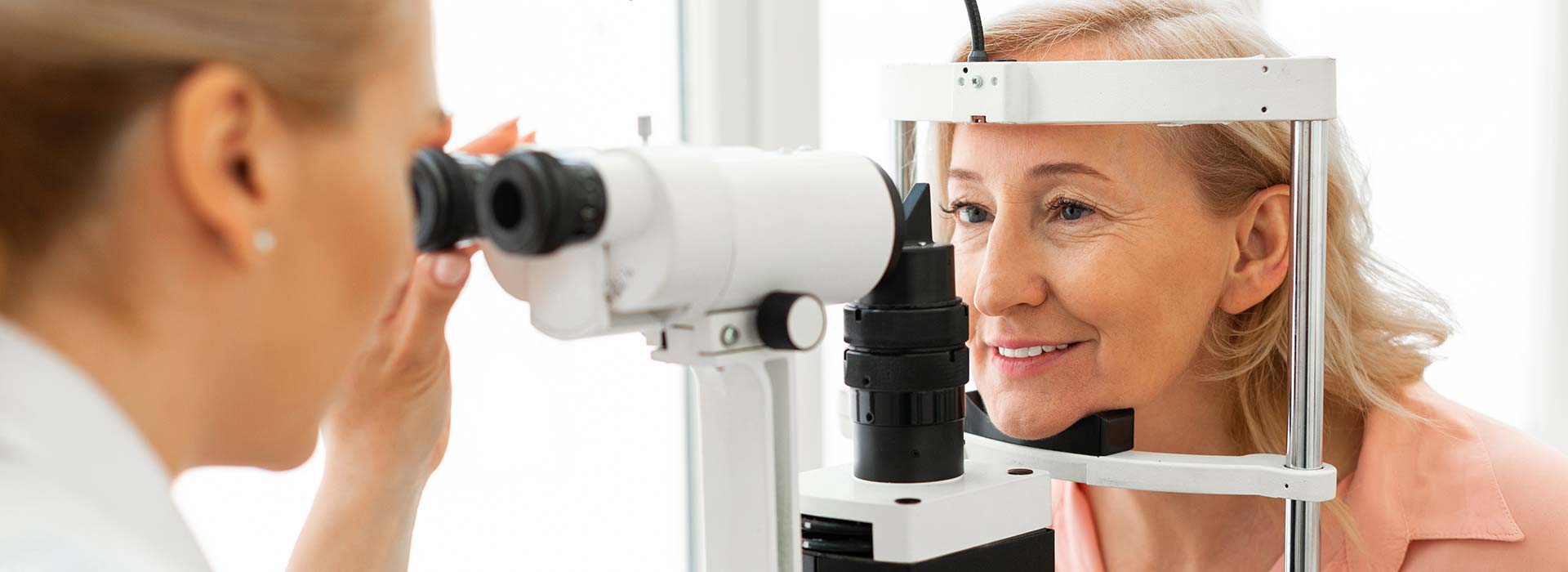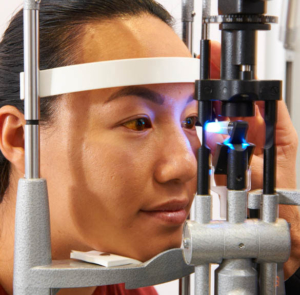Have your refractive lens exchange surgery in Melbourne with our skilled eye specialists
Cataracts are often considered a normal aspect of ageing. Because of this natural age-related deterioration in the transparency of the lens inside the eye, cataract surgery in Melbourne and around the world is one of the most commonly performed surgical procedures.
Many patients with cataract will ask when they are required to have surgery, however, this point is typically subjective and varies from individual to individual. Patients whose hobbies or vocations require sharp vision or discrimination of fine detail are likely to undergo cataract extraction much earlier than someone whose interests are not heavily dependent on perfect vision. Symptoms associated with cataract include:
- Vision that feels blurry, hazy, or filmy
- Deteriorating contrast vision
- Increased glare sensitivity
- Changed colour perception
In Melbourne, cataract surgery is available through either the public or private system. The skilled surgeons at Mornington Peninsula Eye Clinic perform cataract surgery at Frankston Private Hospital in Frankston, Windsor Private Hospital and the Royal Victorian Eye and Ear Hospital. Our surgeons cater for patients who have Private Health Insurance, self-funded private patients and can refer directly for refractive surgery in Melbourne’s public ophthalmology hospital, the Royal Victorian Eye and Ear Hospital.
The Process of Cataract Surgery
Melbourne patients with bilateral cataracts (that is, cataracts in both eyes) will usually have surgery performed one eye at a time separated by about a month. Patients travelling from further communities such as rural Victoria may discuss with your eye doctor your suitability
to shorten the timeframe between each eye operation for your convenience.
An important part of your discussion with your ophthalmologist will be the selection of the intraocular lens for cataract surgery. Our Melbourne patients are often pleasantly surprised to learn they have more than one option of intraocular lens (IOL) implant to replace their opaque cataract lens. Our Melbourne eye doctors are well-experienced in working with all types of IOLs and will discuss your suitability for each option.
Monofocal IOLs
Although the concept of a single-focus IOL has been around for a long time, the designs of these implants have vastly improved. Each IOL corrects for one focal distance, however, you may be suitable for an arrangement called monovision, which involves one eye being implanted with an IOL for reading while the other is given an IOL for
distance vision.
Multifocal IOLs
These are created to provide multiple clear focal distances through each lens, allowing both distance, near, and even intermediate vision in each eye. As there are several types, the optimal design of the multifocal intraocular lens for your cataract surgery in our Melbourne clinic will be discussed with you at your consultation.
Accommodative IOLs
These are a newer type of intraocular lens implant and are designed to allow the user to have some degree of dynamic control over the focus of their near vision.
Cataract surgery in our Melbourne eye clinic takes around 15-20 minutes for each eye. Our reputable surgeons boast a high success rate with very low rates of complications.
Refractive Lens Exchange
Refractive lens exchange is the same procedure as a cataract extraction operation but just in the absence of a cataract in the lens. Melbourne patients experiencing the natural age-related deterioration of near vision known as presbyopia and patients with high long-sightedness (hyperopia) are often suitable for this technique even after having been told they are ineligible for other procedures such as LASIK or PRK.
Similar to cataract surgery, refractive lens exchange involves the removal of the natural lens from within the eye and replacing it with an intraocular lens implant, correcting for your prescription. Like the IOL options available with a cataract operation, the IOL you choose may be monofocal, multifocal, or accommodative.
Patients experiencing visual difficulties from a developing cataract or those interested in how refractive lens exchange can free you from glasses and contacts are invited to organise your initial appointment with us by calling us today.
Note: Any surgical or invasive procedure carries risks. Before proceeding, you should seek a second opinion from an appropriately qualified health practitioner.
Have a Question? Contact us Today!
We’re Open Monday to Friday 9am – 5pm





